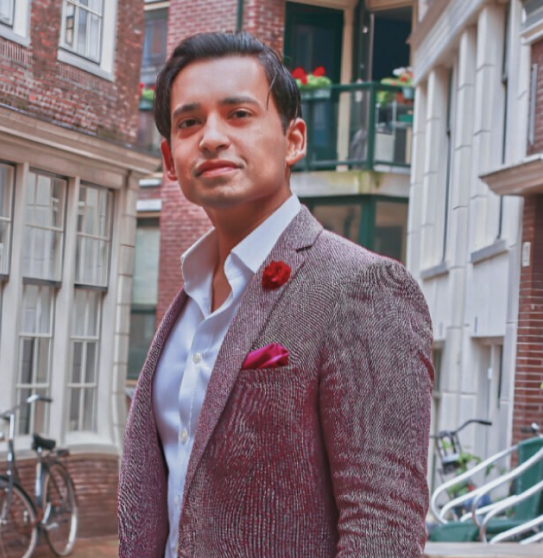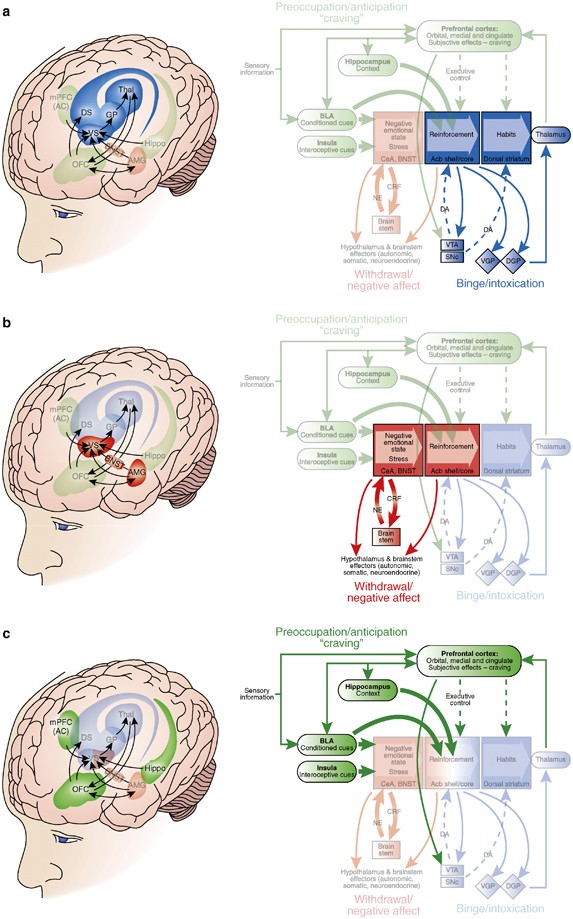Addiction Treatment Philosophy
Important Medications given to Treat Addiction
People sometimes say, “I was addicted to drugs, doctor why are you giving me medication, aren’t those drugs too? I want to be off drugs.”
Arnab Datta, MD uses medically helpful non-habit forming medications to get people off harmful drugs and narcotics. People are more functional on these medications – they are able to work and have relationships. Dr. Datta not only prescribes these medications, but he tapers people down, off them too. Dr. Datta may not taper you off completely, he may help you get on a lower, more healthy dose (depends on the case, please call for details). This is customized and tailored to each patient’s personality, character and dependency. Also, one doesn’t need to stay on these meds lifelong. Let’s find the right cure for you together.
– Suboxone (sublingual medication) and its variations are prescribed to treat opiate use disorder (Heroin, Oxycodone or Opiate Derivative use) and for relapse prevention. This is the more modern and advanced version of methadone. Suboxone also yields less side effects than Methadone. Dr. Datta does not prescribe Oxycodone derivative medications nor does he prescribe Methadone. Suboxone can be given for 30 days, depending on the patient. Details are discussed during the Suboxone induction appointment because every patient is different.
– Sublocade (subdermal monthly injection) the monthly subcutaneous suboxone injection is provided in the office. Sublocade is the subcutaneous injection form of Suboxone. Sublocade is for patients who can’t seem to consume Suboxone on a regular basis, and in that interim, they’ve relapsed on Opiates or Heroin.
– Vivitrol (intramuscular monthly injection), a monthly anti-craving injection which helps in addiction recovery, is only provided in the office. Vivitrol is can help with anti-craving for any drug or behavioral addiction. Naltrexone is the active drug within Vivitrol. Naltrexone is available in an Oral Tablet form. Vivitorl happens to be a specialty medication which is a once a month injection in the upper outer quadrant of the gluteus maximus (buttocks) muscle.
– Outpatient detox regimens are tailor made to a patient’s exact specification (see below) when the patient can’t go to detox. Dr. Datta detoxed from alcohol, xanax, opiates, cannabis, cocaine and crystal methamphetamine, which might not be provided at an inpatient detox. Outpatient detox regimens are not easy. Most of these patients have presented to an inpatient detox hospital floor or clinic at some time or other. Not every person is a candidate for this. A limited quantity of controlled substance medications are given because some patients can’t help themselves and take more than what is prescribed. The appointments are usually more frequent such as weekly or twice weekly. As the patient does better, appointments are less frequent, medications are given for a longer duration of time (Varies person to person). Patients have a discovery call with Dr. Datta and his assistant before they are seen for an outpatient detox schedule. This is highly customized and not available in all medical offices.
– Dr. Datta can provide a second opinion. Dr. Datta can refine existing controlled substance medication regimens or taper a regimen down so that you can be on a healthier non-addictive regimen. Dr. Datta doesn’t just lower doses of meds. On the other hand, some people are on a subtherapeutic dose (their dose is too low) and they need a higher dose. Dr. Datta also gives second opinions on therapeutic issues (non-medication related as well) because many people need a different pair of eyes looking at their life history – they need advice from a fresh new perspective.
– Students as well as adults are evaluated and treated for ADHD and Adult-ADHD (they’re actually synonomous). Dr. Datta conducts an affordable psychological testing – a 45 min computerized test which uncovers information regarding 16 cognitive categories of thinking. This how a comprehensive evaluation of ADHD is done – ADHD is diagnosed with a clinical interview with a doctor + a computerized test.
– Genetic testing is done to find the right regimen with precision. This is helpful for patients who have been on multiple medications in the past. Find out which medications work specifically for you.
– Behavioral addictions follow the same addictive pathways in the brain as hard drugs. Dr. Datta’s Treatments include, but are not limited to: gambling addiction, video game addiction, pornography addiction and sex addiction.
More Services

Addiction Treatment
To help people experience psychological and emotional change in their lives

Psychotherapy
To help people experience psychological and emotional change in their lives

Meditation & EMDR
To help people experience psychological and emotional change in their lives

Med Management
To help people experience psychological and emotional change in their lives

Collab with Psych NPs
To help people experience psychological and emotional change in their lives
Philosophy of Addiction Treatment
Arnab Datta MD completed two fellowships (specializations) in Addiction Psychiatry, which makes him a controlled substance specialist. Dr. Datta can help one manage their doses of Xanax or Klonopin, Adderall IR or other controlled substance medication. Even though patients were prescribed these meds by a doctor, the dosage may not be right and patients may have become dependent on it. Dr. Datta can help taper these down to a healthy dose. Also, patients don’t need to be “addicted to a drug” “or suffer from addiction” to see Dr. Datta. Bad habits are like our “Demons.” They can be a behavior. Dr. Datta treats both drug addiction and behavioral addiction. Dr. Datta is someone who can help you overcome your bad habits or self sabotaging drives.
We have self-sabotaging drives within us – Recovering from addiction is about conquering one’s demons. It’s an unconscious battle one has with themselves. It takes a while to even see these maladaptive unconscious patterns, most people are in denial. You must have a good addiction psychiatrist who can help you understand your negative drives so you can overcome them and be a happier and more content version of yourself.
Dr. Datta believes in moderation. If someone has one glass of wine with their family and friends, they might not be an addict. Then again, there are people who have one glass of wine and it leads to 10; they may be on a slippery slope to a more vicious relapse. It depends on the history, personality and emotions of that specific person. Dr. Datta is very much against the buzz phrase “You are an Addict.” Every person is different.
Supportive psychotherapy is great, but Dr. Datta’s treatment is more than that. This is also more intensive than just psychiatric medication management (or a 10-15 min wellness check). This is an in-depth character and personality analysis where people do serious inner work not just in one session but longitudinally. Various psychotherapy techniques are used, in this section, motivational interviewing is used, the psychotherapy of addiction.
If you need an empathic person who understands your plight, but at the same time – is a coach who will help you beat addiction, then Dr. Datta is for you.
Dr. Datta is psychopharmacologist and a controlled substance specialist who integrates psychotherapy into the treatment. He helps patients remedy medication regimens that might be causing negative side effects.
- An example of a general medication is Seroquel (Quetiapine). There are patients who swear by taking Seroquel (which is actually an antipsychotic medication, but at lower doses it can be sedating) for sleep, but it’s causing them to gain weight and have diabetes in the future. Dr. Datta can advise on the effects of every psychiatric medication and the implications on your mind and body presently and over time.
- Another example is Lyrica(or Pregabalin). People take Lyrica for nerve pain, but it’s also considered a controlled substance medication, thus addiction potential is there. Dr. Datta also uses Lyrica in certain situations.
- Then there’s your classic controlled substance medications such as xanax (alprazolam) 6mg and Adderall (amphetamine salt) IR 60-90mg (immediate release tablet which is different from Adderall XR – the extended release capsule which is more healthy than the IR tablet). Dr. Datta will help you with the underlying causes of your anxiety and adhd and help you build the strength to overcome it.
- Dr. Datta is an empathic controlled substance specialist, who meets you where you’re at with meds and psychotherapy, and provides a plan for you even on the free discovery call – so potential patients know what they’re getting into before they sign on.
- Dr. Datta has corrected the controlled substance medication for countless patients while also paying attention to the conscious and unconscious mind and physical health of the patient.
Dr. Datta does not fill controlled substance medication before their due date, ever. This is why a free discovery call is needed before the patient is accepted into the practice. We need to have a basic understanding of each other before getting started with this type of treatment.
Dr. Datta served as the Medical Director of Addiction Services at St. Joseph’s Medical Centre in Yonkers (from 2016-2021), where he started a suboxone and vivitrol program to treat substance abuse as well as treat general psychiatric conditions. Dr. Datta is presently the medical director of 3 clinics in NYC; Revcore, Silverlake and GMHC (Gay Men’s Health Crisis). This website represents Dr. Datta’s private practice, which is separate from his medical director positions. Also found on the About page.
Important Medications given to Treat Addiction
People sometimes say, “I was addicted to drugs, doctor why are you giving me medication, aren’t those drugs too? I want to be off drugs.”
Arnab Datta, MD uses medically helpful non-habit forming medications to get people off harmful drugs and narcotics. People are more functional on these medications – they are able to work and have relationships. Dr. Datta not only prescribes these medications, but he tapers people down, off them too. Dr. Datta may not taper you off completely, he may help you get on a lower, more healthy dose (depends on the case, please call for details). This is customized and tailored to each patient’s personality, character and dependency. Also, one doesn’t need to stay on these meds lifelong. Let’s find the right cure for you together.
– Suboxone (sublingual medication) and its variations are prescribed to treat opiate use disorder (Heroin, Oxycodone or Opiate Derivative use) and for relapse prevention. This is the more modern and advanced version of methadone. Suboxone also yields less side effects than Methadone. Dr. Datta does not prescribe Oxycodone derivative medications nor does he prescribe Methadone. Suboxone can be given for 30 days, depending on the patient. Details are discussed during the Suboxone induction appointment because every patient is different.
– Sublocade (subdermal monthly injection) the monthly subcutaneous suboxone injection is provided in the office. Sublocade is the subcutaneous injection form of Suboxone. Sublocade is for patients who can’t seem to consume Suboxone on a regular basis, and in that interim, they’ve relapsed on Opiates or Heroin.
– Vivitrol (intramuscular monthly injection), a monthly anti-craving injection which helps in addiction recovery, is only provided in the office. Vivitrol is can help with anti-craving for any drug or behavioral addiction. Naltrexone is the active drug within Vivitrol. Naltrexone is available in an Oral Tablet form. Vivitorl happens to be a specialty medication which is a once a month injection in the upper outer quadrant of the gluteus maximus (buttocks) muscle.
– Outpatient detox regimens are tailor made to a patient’s exact specification (see below) when the patient can’t go to detox. Dr. Datta detoxed from alcohol, xanax, opiates, cannabis, cocaine and crystal methamphetamine, which might not be provided at an inpatient detox. Outpatient detox regimens are not easy. Most of these patients have presented to an inpatient detox hospital floor or clinic at some time or other. Not every person is a candidate for this. A limited quantity of controlled substance medications are given because some patients can’t help themselves and take more than what is prescribed. The appointments are usually more frequent such as weekly or twice weekly. As the patient does better, appointments are less frequent, medications are given for a longer duration of time (Varies person to person). Patients have a discovery call with Dr. Datta and his assistant before they are seen for an outpatient detox schedule. This is highly customized and not available in all medical offices.
– Dr. Datta can provide a second opinion. Dr. Datta can refine existing controlled substance medication regimens or taper a regimen down so that you can be on a healthier non-addictive regimen. Dr. Datta doesn’t just lower doses of meds. On the other hand, some people are on a subtherapeutic dose (their dose is too low) and they need a higher dose. Dr. Datta also gives second opinions on therapeutic issues (non-medication related as well) because many people need a different pair of eyes looking at their life history – they need advice from a fresh new perspective.
– Students as well as adults are evaluated and treated for ADHD and Adult-ADHD (they’re actually synonomous). Dr. Datta conducts an affordable psychological testing – a 45 min computerized test which uncovers information regarding 16 cognitive categories of thinking. This how a comprehensive evaluation of ADHD is done – ADHD is diagnosed with a clinical interview with a doctor + a computerized test.
– Genetic testing is done to find the right regimen with precision. This is helpful for patients who have been on multiple medications in the past. Find out which medications work specifically for you.
– Behavioral addictions follow the same addictive pathways in the brain as hard drugs. Dr. Datta’s Treatments include, but are not limited to: gambling addiction, video game addiction, pornography addiction and sex addiction.
OUTPATIENT DETOXIFICATION
Many patients are working and do not want to take time off for inpatient rehab. Dr. Datta provides custom tailored outpatient detox regimens in office and by video chat for the following substances. That means certain patients do not have to take time off work to get off their xanax (depends on severity of the case). The duration of each detox regimen is specific to your needs, ranging from one month to one year.
- Alcohol (most classical form of outpatient detox)
- Heroin (detox using suboxone)
- Synthetic Opiates (oxycodone, oxymorphone, hydrocodone, hydromorphone, morphine derivatives and kratom).
- Dr. Datta does not prescribe oxycodone derivatives meds such as percocet or vicodin
- Barbiturates (phenobarbital, pentobarbital)
- Benzodiazepines (Xanax, Klonopin and Valium)
- Cannabis and Cannabis derivatives
- Stimulants (Adderall, Cocaine, Crystal methamphetamines)
- Detox is followed by a maintenance period
- “Comfort medications” are given to make the detox process more soothing
- Patients can be referred to short term or long term rehabs
Combination detox regimens are also provided – which means tapering down on multiple controlled substance medications. If you or your loved ones would like to hear more about a tailored regimen, please call to inquire. Dr. Datta does not prescribe methadone or oxycodone derivative meds such as percocet or vicodin. These are prescribed by a pain management doctor.
SUBOXONE and SUBLOCADE
Dr. Datta is a Suboxone specialist. If you desire a confidential, concierge suboxone treatment for opiate use disorder, then this is the practice for you. However, you still need to take the medication as prescribed. Dr. Datta does not over-prescribe and does not prescribe before the medication due date. Dr. Datta can find the right Medication Assisted Treatment for your Opiate use disorder using Suboxone, Subutex, Zubsolv and Bunavail. Dr. Datta can also taper you off suboxone – some people don’t need to be on suboxone for life.
Sublocade, a subcutaneous suboxone injection which lasts for 1 month. It is beneficial for relapse prevention. Dr. Datta provides these subcutaneous injections in the office. Sublocade is the exact same chemical as Suboxone (buprenorphine/naloxone) but in a delayed release depot monthly injection form.
- Dr. Datta has a Drug Addiction Treatment Act waiver (DATA 2000) which is the license allowing a provider to prescribe buprenorphine or suboxone.
- Dr. Datta is a registered opioid treatment provider through the Substance Abuse and Mental Health Services Administration (SAMHSA)
VIVITROL AND NALTREXONE
Vivitrol injections are given in office. Vivitrol is a once a month anti-craving depot injection medication that can treat a variety of addictions, not just for alcohol and opiates. Naltrexone is the tablet version of Vivitrol which also has this anti-craving function.
- Acamprosate: prescribed more frequently than Antabuse)
- Antabuse or Disulfiram: is the traditional medication on which patients become sick if they consume alcohol.
- These are provided for alcohol use disorder if you’re not a candidate for Naltrexone or Vivitrol
Behavioral Addictions
Addiction is not just about drugs and alcohol, behavioral addictions follow the same addictive pathways in the brain and can become disruptive to one’s lifestyle as well. It can impair one’s ability to hold a job or a family relationship, no matter how well they functioned in the past. Behavioral addiction is often more abstract and nebulous than an illicit drug addiction. It’s also more common for the patient to be in denial or lie to themselves. It often lies in the unconscious mind and it will draw you in without you noticing until you find yourself depleted, without energy and a negative version of yourself. People are prescribed medications, piled on medications rather. Some people lose faith in the possibility of improving. Here you can regain that confidence that you can change for the better. Dr. Datta is not only an empathic listener but also a tough coach who can help you yield positive results, but only if you are dedicated toward your improvement.
https://www.nature.com/articles/npp2009110
Gambling Addiction: At what cost will one indulge themselves? One’s financial security can get compromised by their compulsion to gamble. One may be in danger due to borrowing money and unable to pay it back. One’s family’s financial needs are not met, it has been drained by their gambling. What has been given up and what will continue to be lost if this path is continued?
Video Game Addiction: This is a version of internet addiction. It is overindulgence in a virtual world so much so that one sacrifices their family, friends and responsibilities. There may be pressure, reputation and prestige when one gains prominence in role playing games as it is a virtual society. However, one may not be meeting the responsibilities of life due to their affinity to the virtual world. One may not be conscious of its detrimental effects.
Pornography Addiction: This is a silent opponent these days. Our diet is more than what we eat. Our diet is composed of the images and ideas we cultivate in our mind, our psychological nourishment. Nowadays, men and women find it difficult to have a relationship because they have fantasy images in their mind. They are not accepting of a real partner because they have brainwashed themselves with images of fantasy. It is easy to get lost in a fantasy world. Self-gratification may feel good while it lasts, but it can change one’s perception of real intimacy and relating to a real partner.
Sex/Love Addiction: How can you appreciate a real relationship? Do you go for the Narcissistic bad boy or the Borderline girl who have neurotic and insecure attachment styles (or dives into the relationship too heavily and too quickly), possibly due to their own trauma or neglect? Do they only love you when it serves them? Do you put yourself in risky situations with people you don’t know? Does their touch make you feel loved or cared for? We will explore your attachment style based on John Bowlby’s Attachment Theory. For some time, it was thought that one’s Attachment style was impossible to change. However, when the treatment is skilled enough and when your dedication is strong and consistent, you may be surprised how much you can change. Learn the difference between impulsive risk taking and the physical and emotional intimacy you truly desire.
Dr. Datta does psychotherapy as well as prescribe Naltrexone to improve your will power so you can change your life. Naltrexone is a medication that allows you to resist these habits more than will power alone. Naltrexone and psychotherapy are applied together to treat these behavioral addictions.
SMOKING CESSATION
Medications-based and behavioral therapies are applied together to aid with smoking cessation.
- Chantix
- Wellbutrin XL, Naltrexone
- Nicotine Patch, Nicotine gum and lozenge
- Vaporizer taper down: Using Vapes to taper down cigarette use
All of these Medication Assisted Treatments for smoking cessation are used with Psychotherapy, CBT and Motivational Interviewing.
Collateral Treatments
In order to make progress in substance or behavioral addiction recovery, four or five treatment actions need to be done simultaneously. Psychotherapy and medication may not be enough. This high level of intensity may not be needed by everyone.
- 12 step programs and Smart Recovery with a group + sponsor.
- Sober companion who can accompany you at home. Ask for details.
- Therapeutic communities as well as detox & rehab facilities
To know more about it please contact us.
Comprehensive Addiction Services
At Dr. Arnab Datta's practice, we offer a range of specialized addiction treatment services to address the unique needs of each individual on their journey to recovery. Dr. Datta's experience, compassion, and evidence-based approaches make him a trusted partner in your path towards a healthier, addiction-free life.
Many patients are working and do not want to take time off for inpatient rehab. Dr. Datta provides custom tailored outpatient detox regimens IN OFFICE and by video chat for the following substances. That means certain patients do not have to take time off work to get off their xanax (depends on severity of the case). The duration of each detox regimen is specific to your needs, ranging from one month to one year.
- Alcohol (most classical form of outpatient detox)
- Heroin (detox using suboxone)
- Synthetic Opiates (oxycodone, oxymorphone, hydrocodone, hydromorphone, morphine derivatives and kratom).
- Dr. Datta does not prescribe oxycodone derivatives meds such as percocet or vicodin
- Barbiturates (phenobarbital, pentobarbital)
- Benzodiazepines (Xanax, Klonopin and Valium)
- Cannabis and Cannabis derivatives
- Stimulants (Adderall, Cocaine, Crystal methamphetamines)
- Detox is followed by a maintenance period
- “Comfort medications” are given to make the detox process more soothing
- Patients can be referred to short term or long term rehabs
Combination detox regimens are also provided – which means tapering down on multiple controlled substance medications. If you or your loved ones would like to hear more about a tailored regimen, please call to inquire. Dr. Datta does not prescribe methadone or oxycodone derivative meds such as percocet or vicodin. These are prescribed by a pain management doctor.
Dr. Datta is a Suboxone specialist. If you desire a confidential, concierge suboxone treatment for opiate use disorder, then this is the practice for you. However, you still need to take the medication as prescribed. Dr. Datta does not over-prescribe and does not prescribe before the medication due date. Dr. Datta can find the right Medication Assisted Treatment for your Opiate use disorder using Suboxone, Subutex, Zubsolv and Bunavail. Dr. Datta can also taper you off suboxone – some people don’t need to be on suboxone for life.
– Students as well as adults are evaluated and treated for ADHD and adult-ADHD (they’re actually synonomous). Dr. Datta conducts an affordable psychological testing – a 45 min computerized test which uncovers information regarding 16 cognitive categories of thinking. This how a comprehensive evaluation of ADHD is done – ADHD is diagnosed with a clinical interview with a doctor + a computerized test.
– Genetic testing is done to find the right regimen with precision. This is helpful for patients who have been on multiple medications in the past. Find out which medications work specifically for you.
Outpatient detox regimens are tailor made to a patient’s exact specification (see below). Patients have been detoxed from alcohol, xanax, opiates, cannabis, cocaine and crystal methamphetamine. Outpatient detox regimens are not easy. Most of these patients have presented to an inpatient detox hospital floor or clinic at some time or other. Not every person is a candidate for this. A limited quantity of controlled substance medications are given because some patients can’t help themselves and take more than what is prescribed. The appointments are usually more frequent such as weekly or twice weekly. As the patient does better, appointments are given less frequently, medications are given for a longer duration of time (Varies person to person). Patients have a discovery call with Dr. Datta and his assistant before they are seen for an outpatient detox schedule. This is highly customized and not available in all medical offices.
Medications-based and behavioral therapies are applied together to aid with smoking cessation.
- Chantix
- Wellbutrin XL, Naltrexone
- Nicotine Patch, Nicotine gum and lozenge
- Vaporizer taper down: Using Vapes to taper down cigarette use
All of these Medication Assisted Treatments for smoking cessation are used with Psychotherapy, CBT and Motivational Interviewing.
Addiction is not just about drugs and alcohol, behavioral addictions follow the same addictive pathways in the brain and can become disruptive to one’s lifestyle as well. It can impair one’s ability to hold a job or a family relationship, no matter how well they functioned in the past. Behavioral addiction is often more abstract and nebulous than an illicit drug addiction. It’s also more common for the patient to be in denial or lie to themselves. It often lies in the unconscious mind and it will draw you in without you noticing until you find yourself depleted, without energy and a negative version of yourself. People are prescribed medications, piled on medications rather. Some people lose faith in the possibility of improving. Here you can regain that confidence that you can change for the better. Dr. Datta is an empathic listener, but also a tough coach who can help you yield positive results, but only if you are dedicated toward your improvement.
MEET YOU DOCTOR
Arnab Datta, MD
Dr. Datta completed his residency (general adult psychiatry) and fellowship (a research fellowship in addiction Psychiatry and a clinical fellowship also in addiction psychiatry) training in New York City. Dr. Datta was also the medical director of addiction services at St Joseph Hospital in Yonkers New York for 5 consecutive years (from 2016-2021) – where he started a suboxone and vivitrol program to treat substance abuse.
- Board Certified in General Adult Psychiatry
- Board Certified in Addiction Psychiatry





